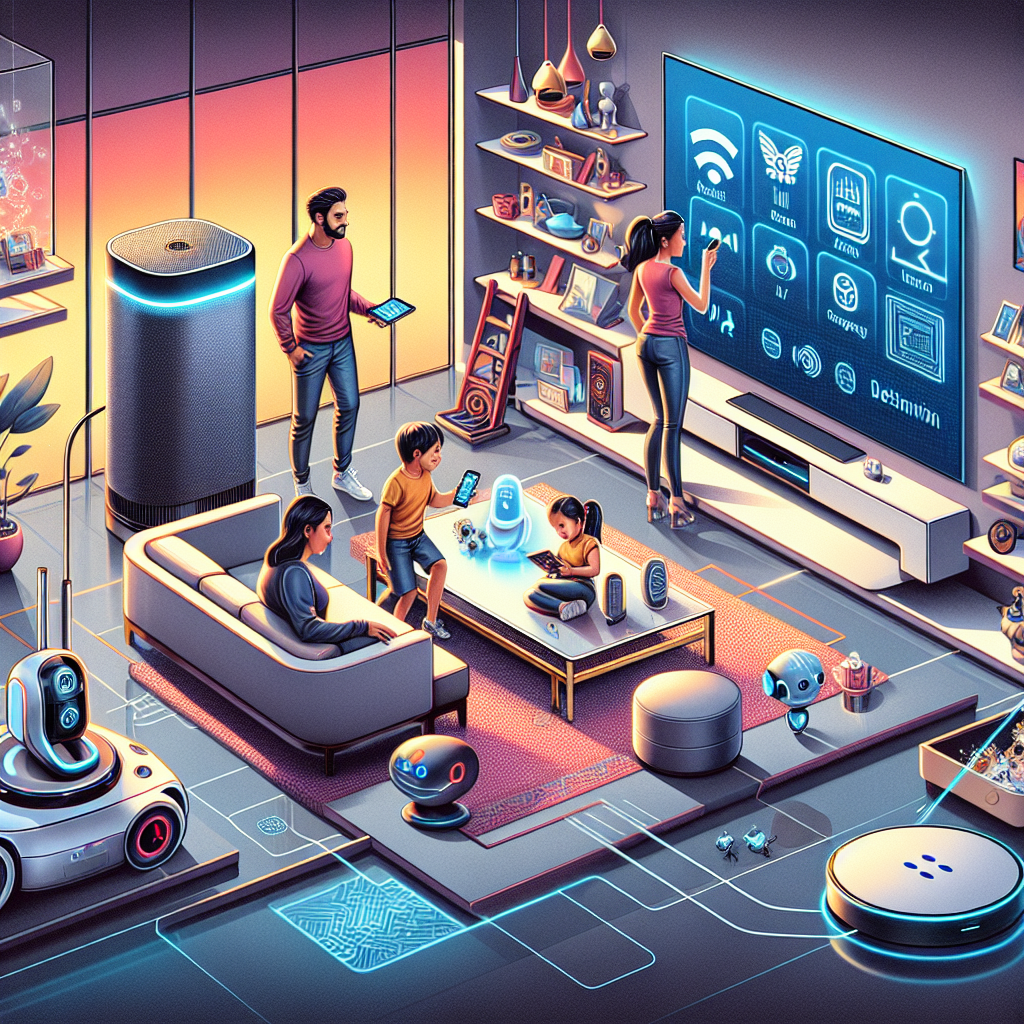In recent years, artificial intelligence (AI) has revolutionized many aspects of our lives, including how we entertain ourselves at home. AI tools have been integrated into various home entertainment devices and platforms, offering users a more personalized and immersive experience. From smart TVs to virtual assistants, AI is changing the way we consume media and interact with our entertainment systems. In this article, we will explore the use of AI tools in home entertainment and discuss how they are shaping the future of entertainment in our homes.
AI in Smart TVs
One of the most common applications of AI in home entertainment is in smart TVs. These TVs are equipped with AI algorithms that can analyze users’ viewing habits and preferences to provide personalized recommendations. For example, if you enjoy watching action movies, the AI in your smart TV may suggest similar movies or TV shows that you might like. This not only helps users discover new content but also enhances their overall viewing experience.
AI-powered smart TVs also have voice recognition capabilities, allowing users to control their TVs using voice commands. This feature makes it easier for users to search for content, change channels, or adjust settings without having to fumble with a remote control. Additionally, some smart TVs are equipped with AI-powered upscaling technology, which can enhance the quality of lower-resolution content to make it look sharper and more detailed on the screen.
AI in Streaming Platforms
Streaming platforms like Netflix and Amazon Prime Video have also embraced AI to improve their services. These platforms use AI algorithms to analyze users’ viewing habits and preferences, allowing them to recommend personalized content to each user. For example, Netflix’s recommendation system analyzes the viewing history of each user to suggest movies and TV shows that are likely to be of interest to them. This personalized approach to content recommendation has been shown to increase user engagement and satisfaction.
In addition to content recommendation, streaming platforms also use AI to optimize video quality based on the user’s internet connection speed. AI algorithms can adjust the video bitrate in real-time to ensure smooth playback without buffering or stuttering. This adaptive streaming technology helps to improve the overall viewing experience for users, especially those with slower internet connections.
AI in Virtual Assistants
Virtual assistants like Amazon Alexa and Google Assistant have become popular additions to many households, providing users with a convenient way to control their smart home devices and access information. These virtual assistants are powered by AI algorithms that enable them to understand and respond to natural language commands. Users can ask their virtual assistants to play music, control smart home devices, or provide weather updates, among other things.
Virtual assistants can also be integrated with home entertainment devices to enhance the user experience. For example, users can use voice commands to play specific songs or playlists on their smart speakers, or to control their smart TVs without having to use a remote control. Virtual assistants can also provide recommendations for movies or TV shows based on the user’s preferences, making it easier for users to find content that they will enjoy.
AI in Gaming Consoles
AI has also made its way into gaming consoles, where it is used to enhance the gaming experience for players. Many modern gaming consoles are equipped with AI-powered features that can improve gameplay, graphics, and overall performance. For example, AI algorithms can be used to dynamically adjust game difficulty based on the player’s skill level, ensuring that the game remains challenging and engaging for all players.
AI can also be used to enhance the visual quality of games by implementing techniques like real-time ray tracing or AI upscaling. These technologies can make games look more realistic and immersive by simulating how light interacts with objects in the game world, or by enhancing the resolution of lower-resolution textures. AI-powered features can also be used to improve the overall gaming experience by providing personalized recommendations for games or in-game tips based on the player’s preferences and playstyle.
FAQs
Q: How does AI improve the user experience in home entertainment?
A: AI algorithms can analyze users’ viewing habits and preferences to provide personalized content recommendations, optimize video quality based on internet connection speed, and enhance the overall user experience by enabling voice control and other convenient features.
Q: Are there any privacy concerns associated with AI in home entertainment devices?
A: While AI can enhance the user experience, there are potential privacy concerns related to data collection and analysis. Users should be aware of how their data is being used by AI algorithms and take steps to protect their privacy, such as reviewing privacy policies and adjusting privacy settings on their devices.
Q: What are some future trends in AI-powered home entertainment?
A: Future trends in AI-powered home entertainment may include more advanced content recommendation algorithms, improved voice recognition capabilities, and enhanced visual quality through technologies like real-time ray tracing and AI upscaling. Additionally, AI-powered virtual assistants may become more integrated with home entertainment devices to provide a seamless user experience.
In conclusion, AI tools are transforming the way we entertain ourselves at home, providing personalized recommendations, optimizing video quality, and enhancing the overall user experience. From smart TVs to virtual assistants, AI is revolutionizing home entertainment and shaping the future of how we consume media. As technology continues to advance, we can expect to see even more innovative AI-powered features in our home entertainment devices, offering us a more immersive and personalized entertainment experience.

